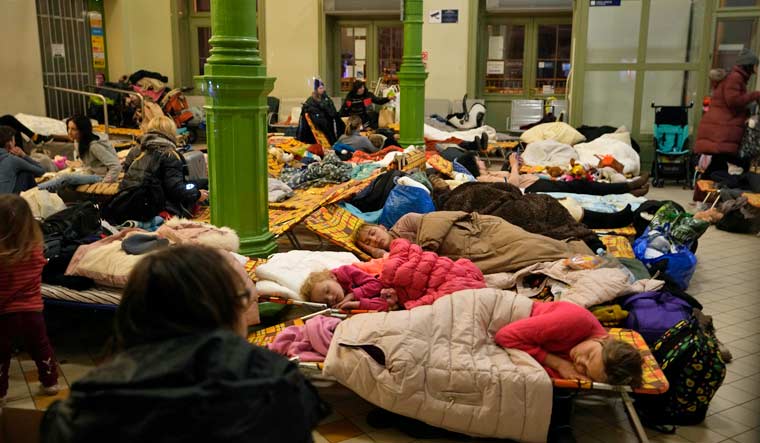Ukraine: Policy innovation is whats needed in refugee response

More than 2.6 million people are estimated to have fled Ukraine since the Russian invasion nearly 20 days ago, a number that is steadily growing daily. The world has watched in stunned horror at the recklessness of the Russian assault, a show of might right on the doorstep of Europe and the rest of the Western world. It carries a brazenness of former empires, something most of our generations only saw the tail ends of or heard about from our parents.
The human cost of this invasion is staggering. The UN High Commissioner for Refugees Filippo Grandi referred to it as "the fastest-growing refugee crisis in Europe since World War II." News reports of maternity hospitals being bombed and journalists targeted have likened this conflict to some of the most heinous acts of war. Neighbouring states in Eastern Europe are quickly mobilizing mass humanitarian responses for the thousands of people crossing into their territories daily. Few who are watching the crisis from afar could argue with the reasons "why" people are fleeing from Ukraine en masse; much of the world has been given front row seats to the devastation.
What will happen to these millions of refugees? Where will they go? How will they care for their families? Well, unless the law changes, most Ukrainians will not qualify for "official" refugee protection under international law, nor will they be legally considered "refugees." This might seem absurd, but as I wrote in a previous article discussing the crisis in Afghanistan only a few months ago, the narrow scope of asylum law only recognizes someone as a refugee if they can prove they would be "persecuted" if they returned to their home country. The 1951 Refugee Convention states this persecution must be due to race, religion, political status, nationality, or membership of a particular social group. People who flee generalized violence or war in their country are not considered in this definition. To complicate matters more, for someone to be determined a "refugee," the burden of proof is not about whether they already were persecuted, but whether they would be persecuted if they returned.
Read the full article at TheWeek.in
Words by Kelsey LeBrun Keswani
Published on 16 March 2022 in Publications